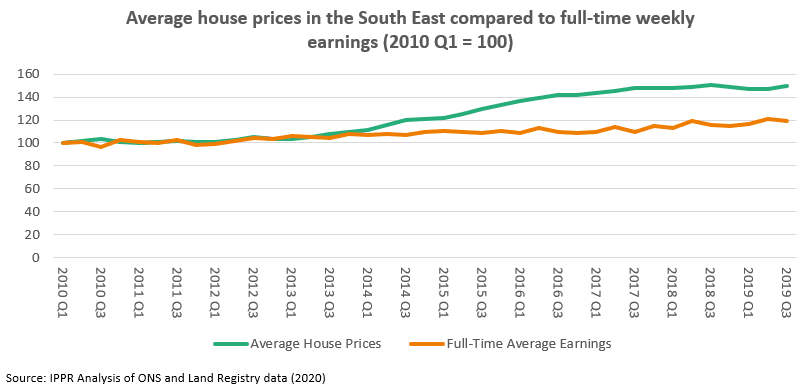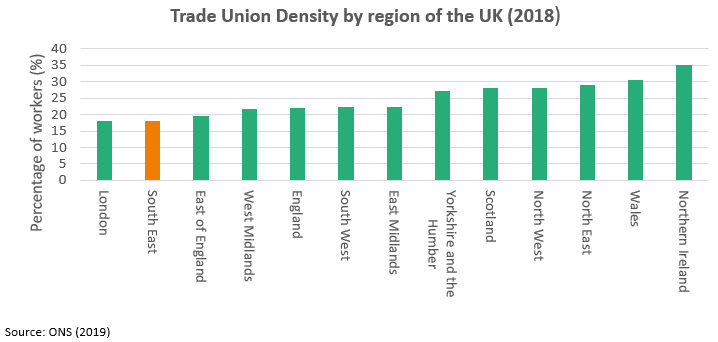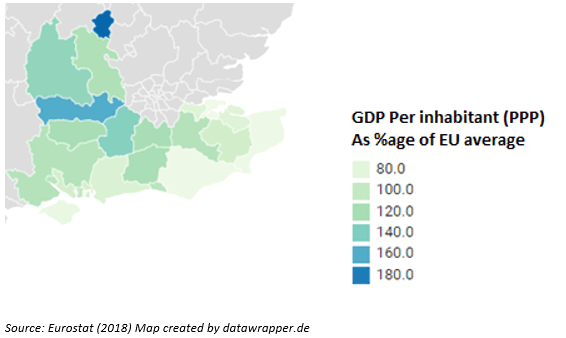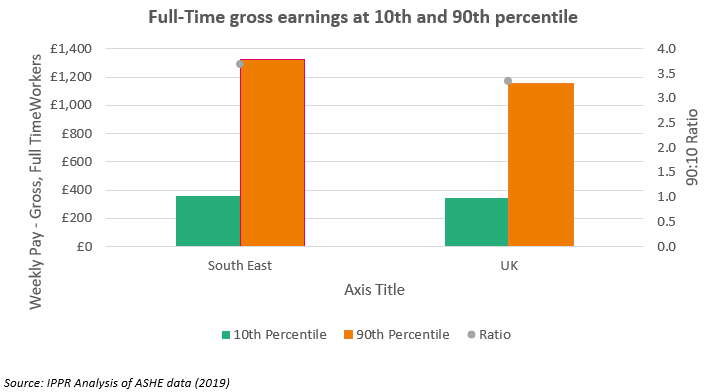REGIONAL ANALYSIS: South East
Article
This analysis of was handed out at our event Economic Justice in the South East. The event was part of a UK-wide series of public meetings held by the IPPR Centre for Economic Justice.
House prices have grown much faster than earnings in the South East
In early 2010, the average house price in the South East of England was £217,000 – 29% higher than the UK average of £168,000. By the end of the decade this gap had widened such that the average South Eastern house price was 39% higher than the UK average (July-September 2019). Housing has become much less affordable for ordinary people in the South East as a result. Full-time earnings grew by just 19% over this period, compared to house prices which grew by 50%. High prices in the South East make the region particularly vulnerable to a potential house price crash.
Housing has become much less affordable for ordinary people in the South East as a result. Full-time earnings grew by just 19% over this period, compared to house prices which grew by 50%. High prices in the South East make the region particularly vulnerable to a potential house price crash.
Trade union membership is joint lowest of anywhere in the UK
In 2018, just 18% of employees in the South East were a member of a trade union, the joint lowest of any region. This is important for living standards as trade unions help negotiate higher wages and better working conditions for their members.
Although the South East is a wealthy region overall, this varies a lot within the region, with coastal regions having much lower regional incomes
Whilst some areas are substantially richer than average, areas such as Medway, East Kent and the Isle of Wight have lower regional incomes (per person) than the EU average. Although the UK as a whole has substantial gaps in pay between higher and lower earners, this is particularly marked in the South East.
Although the UK as a whole has substantial gaps in pay between higher and lower earners, this is particularly marked in the South East.  The best paid 10% of full-time workers in the South East earn £1,320 a week or more, compared to the poorest paid 10% who earn £360 a week or less.
The best paid 10% of full-time workers in the South East earn £1,320 a week or more, compared to the poorest paid 10% who earn £360 a week or less.
The ratio between these numbers, the 90:10 ratio, a common measure of pay inequality, is higher in the South East than the UK as a whole.
Related items

The full-speed economy: Does running a hotter economy benefit workers?
How a slightly hotter economy might be able to boost future growth.
Making the most of it: Unitarisation, hyperlocal democratic renewal and community empowerment
Local government reorganisation need not result in a weakening of democracy at the local level.
Transport and growth: Reforming transport investment for place-based growth
The ability to deliver transformative public transport is not constrained by a lack of ideas, public support or local ambition. It is constrained by the way decisions are taken at the national level.